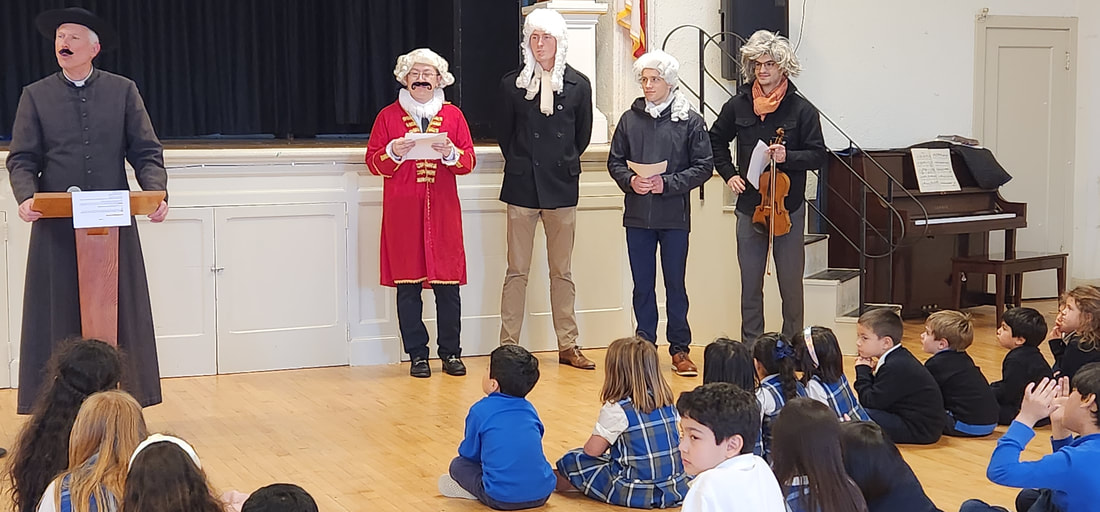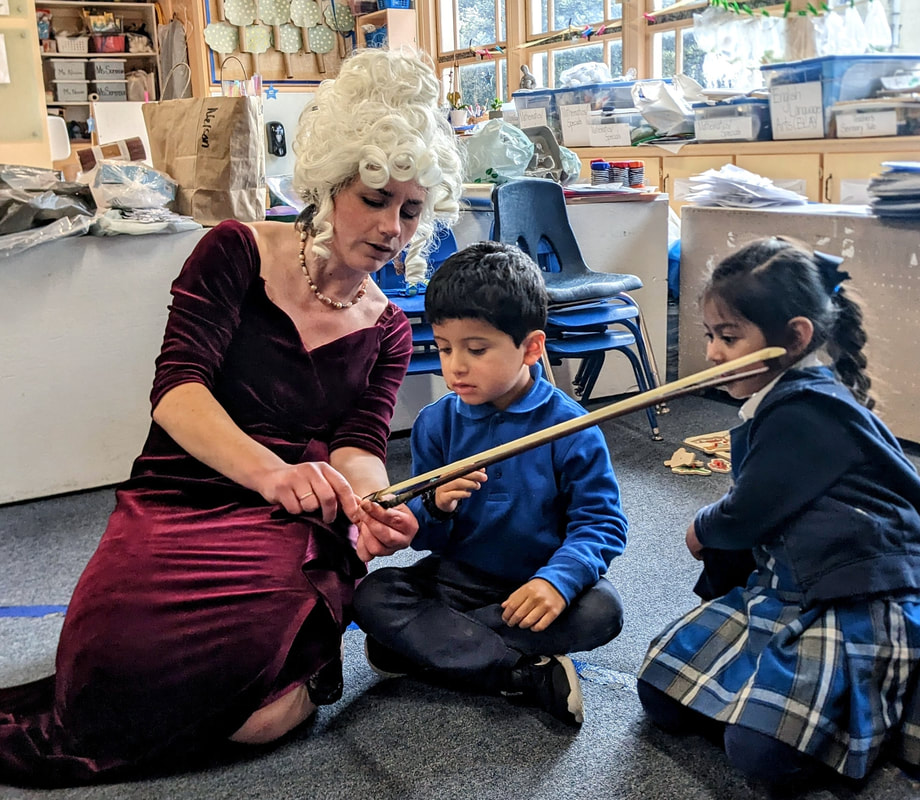
Our fourth-grade teacher, Miss Carmel Richard, who is also a music teacher, pulled off a school-wide music festival yesterday, herself playing Mozart’s elder sister Nannerl. Somehow Carmel convinced me to dress up like Pope Gregory, although I ended up looking more like a cross between Don Bosco and Hercule Poirot. In any case my peculiar attire arrested the attention of our schoolchildren, a sea of wide-eyed youngsters to whom I described in foppishly Italianate English how I had invented “Gregorian Chant.” Next was Wolfgang Amadeus himself, in excited and thickly Teutonic tones, describing how he had begun composing at age five and never stopped. Then there was Beethoven and J.S. Bach, again in charmingly affected German accents, and finally Sir Thomas Ravenscroft in the Queen’s own English. Between live piano pieces and violin duets, Miss Carmel (AKA Wolfie’s older sister) would run up to the CD player for some harpsichord and chamber ensemble pieces.
I usually listen to Classical music every morning while washing up, but I have been fasting from Bach, Beethoven, and Mozart since Ash Wednesday. “Hunger is the best spice,” they say, and so hearing (and seeing) the beauty of these compositions was a feast to a starving man. But consider this: most children today have been starved of Classical Music all their lives. They’ve never heard (let alone seen) good music. Yesterday’s performances opened up a wonderland for their ears and minds. And that is why classically-educated children are so happy.
I was nine years old when I first heard Gregorian Chant. I was bounding down the stairs for dinner, and Dad had put on a record of French monks chanting the Missa de angelis. The sound lifted me up to heaven, opened my intellect to a new dimension of creation, stirred my heart with a burning desire to know and love God, and inspired a fascination with all things, Great and Small. Most “music” today is self-referential and performative, unable to escape the centrifugal force of one’s own navel. Classical music, by contrast, is outward-looking, and Gregorian Chant in particular is positively universal. By its measured order and comprehensive perspective, good music affords listeners the joy of beholding the entirety of the human experience; it reveals how individual parts of the created order relate to each other in forming an integral whole.
Besides all that, good music is good fun. In our period costumes yesterday, portraying charming cultural accents and playing the sprightly capriccios of Mozart and Bach, we laughed and rejoiced to see ourselves as parts of God’s wonderful universe. A good school teaches good music, and so teaches goodness along with truth and beauty. That’s why our students—including myself yesterday afternoon—are so happy!



 RSS Feed
RSS Feed